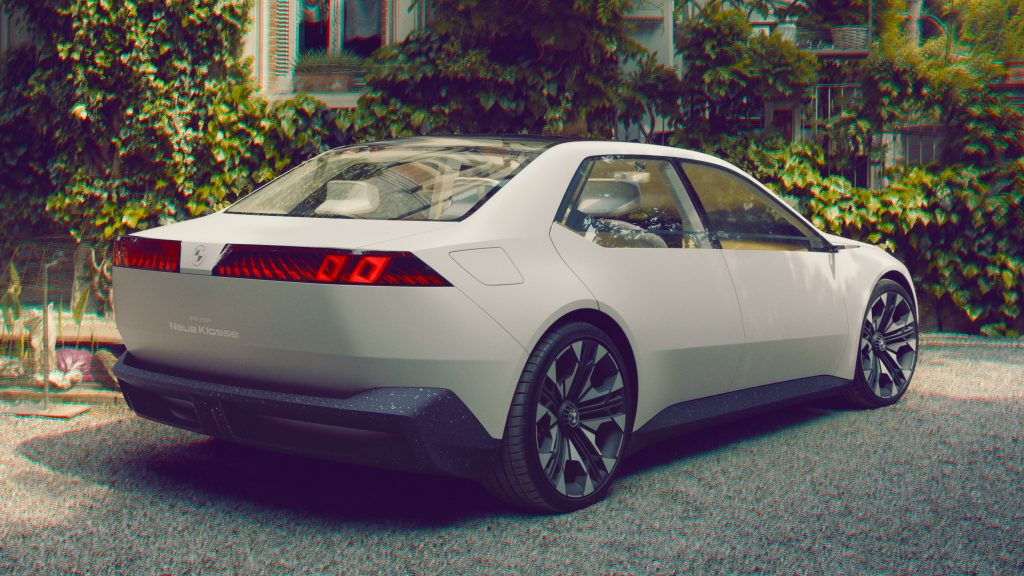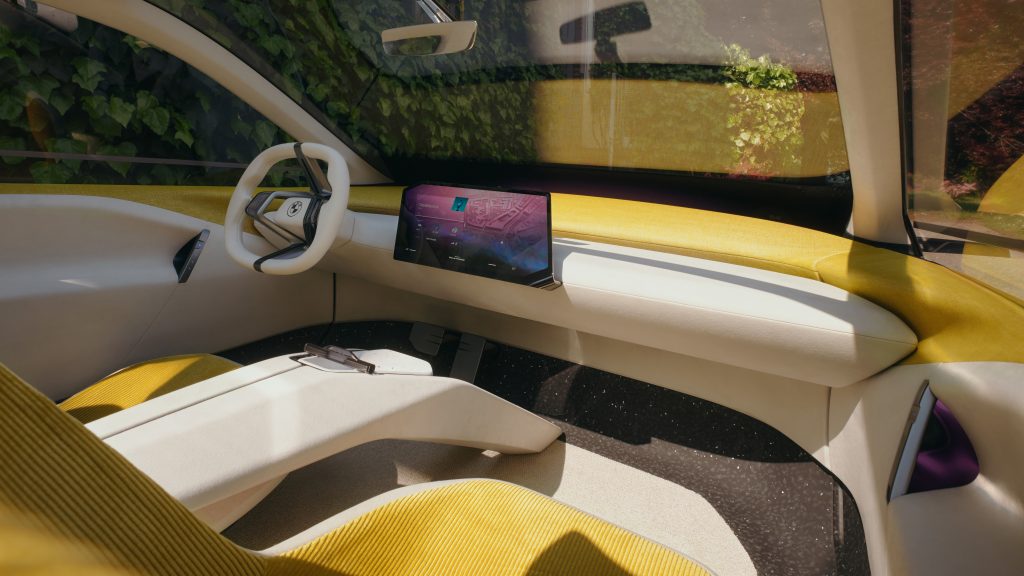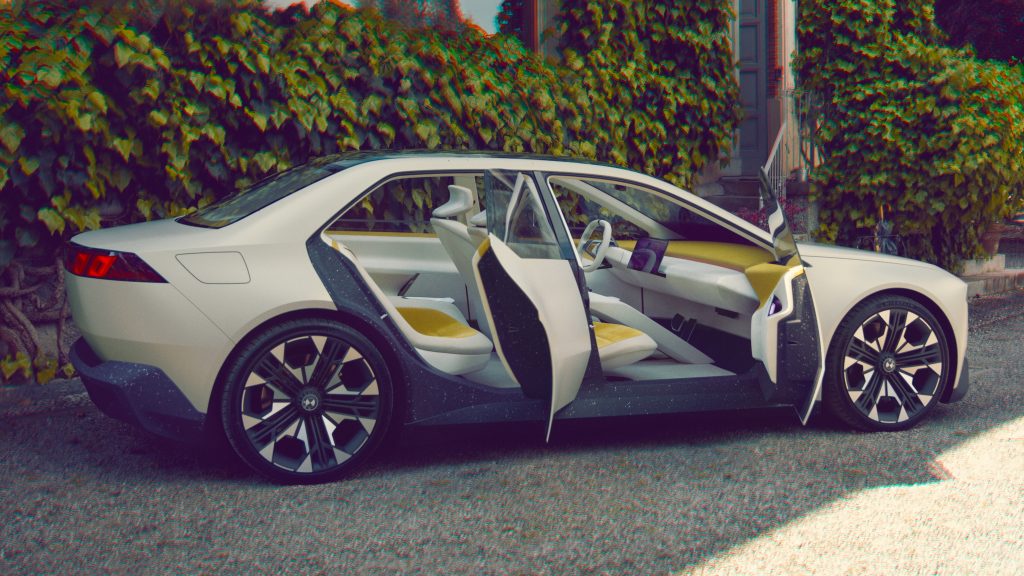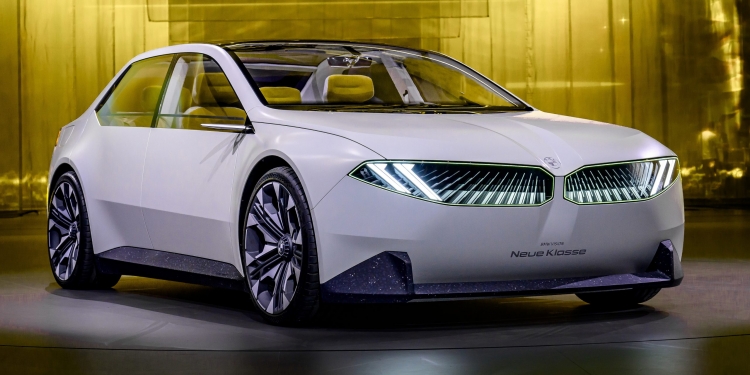Showing that even BMW is not immune to the adapt-or-die era of electric, the company has completely reinvented its bread-and-butter sports sedan with the Vision Neue Klasse. The name is a reference to Munich’s earlier range of midrange sedans from the 1960s, which rescued it from near-bankruptcy and evolved into the incredibly successful 3 and 5 Series.
A development of the Vision Dee concept shown at CES, the Vision Neue Klasse’s angular styling harks back to the original Neue Klasse cars, with a compact, clearly-defined three-box shape, a forward-sloping “shark nose”, large windows and a prominent Hofmeister kink on the C-pillar. With short front and rear overhangs, the large 21-inch wheels are pushed to the far corners of the car, giving it a broad stance.

The front end is dominated by an illuminated full-width double-kidney grille that envelops the dual-bar headlights, while the lower portion of the side windows feature E ink technology—highlight the touch sensors for opening the doors. Meanwhile the broad taillights feature 3D-printed components.
The minimalist theme continues on the inside, where the Vision Neue Klasse exhibits few controls and displays. The traditional instrument cluster has been replaced by the BMW Panoramic Vision, a head-up display that takes up the full width of the windscreen, creating a “shared experience” for the driver and passenger. A parallelogram-shaped mini-LED infotainment screen continues to feature in the centre, running on a new iDrive system that drivers can use to move content to the windscreen projection.

Elsewhere, you’ll find bright cord fabric upholstery on the seats (affixed to a single mounting to provide more rear seat legroom), as well as a “floating” centre console that houses a wireless charging cradle and a large drive selector toggle. The cabin uses zero leather and chrome, helping to reduce the car’s carbon footprint.
Under the skin, the Vision Neue Klasse utilises the sixth generation of BMW’s eDrive motor and battery technology, featuring round instead of prismatic battery cells to boost battery capacity by more than 20%. While no specifications have been released just yet, the company is touting a 30% increase in range and charging speed (up from a maximum of 630km and 200kW respectively, achieved on the iX xDrive50), as well as a 25% greater efficiency.

While BMW has yet to reveal when the production Neue Klasse models will be introduced, the company has already confirmed they will be built at a new plant in Debrecen, Hungary. The production process will use zero fossil fuels and utilise raw and secondary materials produced with lower carbon dioxide emissions.








